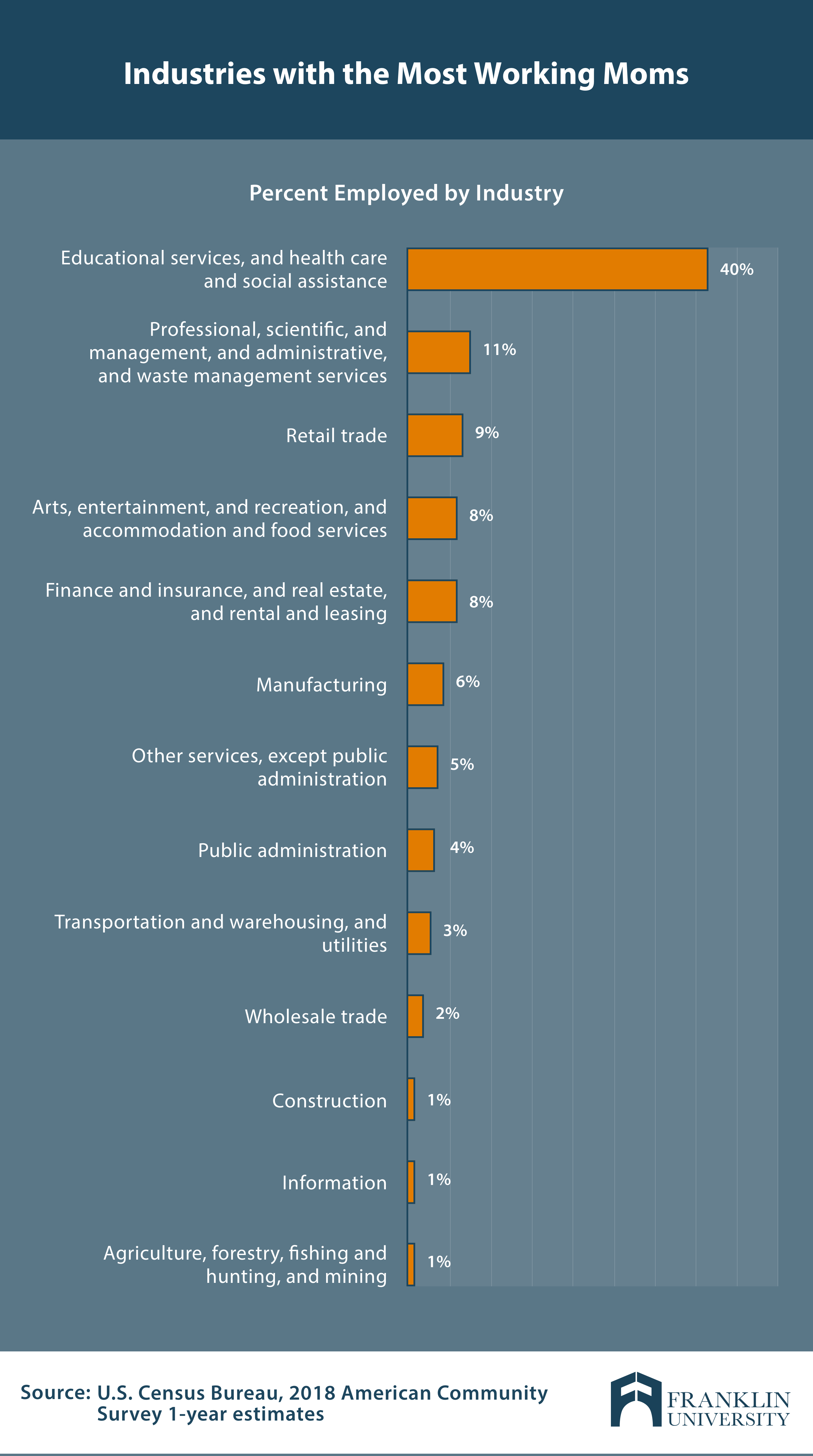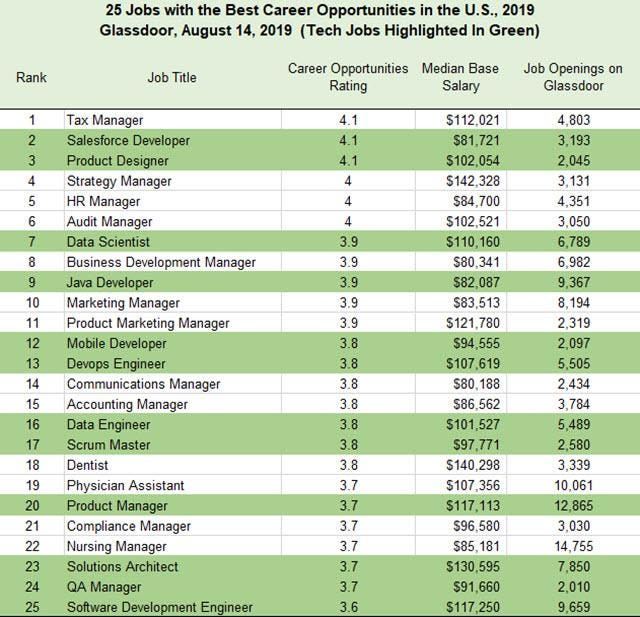The best career depends on individual interests and skills. High-demand fields like technology, healthcare, and renewable energy offer excellent opportunities.
Choosing the right career can feel overwhelming. Many factors come into play, including personal interests, market demand, and job stability. People often seek roles that align with their passions while providing financial security. Industries such as technology and healthcare are thriving, offering numerous job openings.
Renewable energy is also gaining traction as the world shifts towards sustainability. Exploring different career paths is essential for making an informed decision. Understanding your strengths and values will guide you toward the ideal job. Ultimately, the best career is one that balances your aspirations with the needs of the job market.
The Quest For The Perfect Career
The search for the ideal job can feel overwhelming. Many factors influence this journey. Personal satisfaction and financial stability often clash. Finding balance is essential for a fulfilling career.
Personal Satisfaction Vs. Financial Stability
Choosing a career involves weighing personal happiness against money. Here are key points to consider:
- Personal Satisfaction: Enjoying your work boosts happiness.
- Financial Stability: A well-paying job provides security.
- Work-Life Balance: Consider how a job fits your life.
Many dream of a job they love. Yet, high-paying jobs may be less enjoyable. Ask yourself these questions:
- What activities make me happy?
- How much money do I need?
- Can I find joy in my current job?
Finding your perfect career might require compromise. Pursue opportunities that align with your values.
Evolving Job Markets: Adapting To Change
The job market changes rapidly. New industries emerge while others decline. Adapting to these shifts is crucial.
| Industry | Growth Rate | Job Opportunities |
|---|---|---|
| Technology | Fast | High |
| Healthcare | Strong | Growing |
| Renewable Energy | Rising | Expanding |
Stay informed about trends. Skills in demand may change. Continuous learning helps you stay relevant.
Consider these tips for adapting:
- Take online courses.
- Network with professionals.
- Attend industry events.
Assessing Your Strengths And Passions
Choosing the best career involves knowing yourself. Understanding your strengths and passions leads to fulfilling work. This section helps you discover your unique skills and interests.
Identifying Your Core Skills
Recognizing your core skills is essential. These skills can shape your career path. Use the following methods to identify them:
- Self-Reflection: Think about what you enjoy doing.
- Feedback: Ask friends or family about your strengths.
- Skills Assessment: Take online quizzes to find your talents.
Here are some common core skills:
| Skill Type | Description |
|---|---|
| Communication | Ability to convey ideas clearly. |
| Problem-Solving | Finding solutions to challenges. |
| Creativity | Thinking outside the box. |
| Technical Skills | Proficiency in tools or technology. |
Aligning Interests With Potential Careers
Your interests play a big role in your career choice. Aligning them with potential jobs can lead to satisfaction. Consider these steps:
- List Interests: Write down things that excite you.
- Research Careers: Look for jobs that match your interests.
- Network: Talk to professionals in those fields.
Here are some common interests and related careers:
| Interest | Possible Careers |
|---|---|
| Art | Graphic Designer, Illustrator |
| Science | Research Scientist, Lab Technician |
| Technology | Software Developer, Data Analyst |
| Helping Others | Nurse, Social Worker |
Finding a career that matches your strengths and passions takes time. Stay curious and explore options. The right career will bring joy and success.
The Role Of Education And Training
Education and training play a vital role in career success. They open doors and enhance skills. Choosing the right path can lead to fulfilling jobs. Different approaches exist, each with unique benefits.
Formal Degrees Vs. Self-learning
Formal degrees provide structured learning and recognized qualifications. They often take years to complete and require significant investment. Here are some pros and cons:
| Formal Degrees | Self-Learning |
|---|---|
| Recognized by employers | Flexible learning pace |
| Access to resources | Lower cost |
| Networking opportunities | Personalized learning experience |
| Structured curriculum | Requires self-discipline |
Many people choose self-learning for its flexibility. Online courses and free resources are widely available. This method suits those who prefer to learn at their own pace. Self-learners often develop strong problem-solving skills.
Continuous Professional Development
Continuous professional development (CPD) is key to career advancement. It involves ongoing learning and skill enhancement. Here are some effective CPD methods:
- Workshops and seminars
- Online courses
- Certifications in specialized fields
- Networking events
Employers value employees who pursue CPD. It shows dedication and a desire to grow. Staying updated with industry trends is essential. Engaging in CPD can lead to promotions and better job opportunities.

Credit: www.jobsthathelp.com
Understanding Job Market Trends
Job market trends help identify the best careers. They show which industries grow and which skills are in demand. Understanding these trends guides job seekers in making informed choices.
Emerging Industries And Future Prospects
New industries are shaping the job market. Here are some key sectors to watch:
- Renewable Energy: Jobs in solar and wind energy are growing.
- Healthcare Technology: Telehealth and medical devices are on the rise.
- Artificial Intelligence: AI is transforming various sectors.
- Cybersecurity: Protecting data is crucial for businesses.
| Industry | Job Roles | Future Growth Rate |
|---|---|---|
| Renewable Energy | Solar Technicians, Wind Turbine Technicians | 20%+ |
| Healthcare Technology | Health IT Specialists, Telehealth Coordinators | 15%+ |
| Artificial Intelligence | Data Scientists, Machine Learning Engineers | 22%+ |
| Cybersecurity | Information Security Analysts, Security Engineers | 31%+ |
The Impact Of Technology On Employment
Technology changes how we work. It creates new jobs and eliminates some. Here are key effects:
- Automation: Machines handle repetitive tasks.
- Remote Work: Technology allows working from anywhere.
- New Skills: Workers need to learn digital skills.
- Gig Economy: Freelance jobs are increasing.
Staying updated is vital. Skills in tech will boost career prospects. Embrace learning to stay relevant.
Work-life Balance And Job Satisfaction
Finding a job that offers a great work-life balance is crucial. It directly impacts job satisfaction. Many people seek positions that allow them to thrive both personally and professionally. Understanding your needs is essential for a fulfilling career.
Defining Your Ideal Work Environment
Your work environment shapes your daily experience. Identify what makes you comfortable. Here are key factors to consider:
- Company Culture: Supportive and friendly atmospheres boost morale.
- Workplace Location: Proximity to home reduces commute stress.
- Team Dynamics: Positive relationships enhance collaboration.
Think about what motivates you. A great environment fosters creativity and productivity. Evaluate different workplaces to find the best fit.
The Significance Of Flexibility And Benefits
Flexibility in a job is vital for happiness. It allows for personal commitments and reduces stress. Key benefits to consider include:
| Benefit | Importance |
|---|---|
| Remote Work Options | Promotes a better work-life balance. |
| Flexible Hours | Accommodates personal needs and activities. |
| Health Benefits | Supports overall well-being and productivity. |
Evaluate job offers carefully. Look for positions that provide flexibility and strong benefits. These factors lead to higher job satisfaction.
Financial Aspects Of Career Choices
Choosing a career involves many financial considerations. Salary, job stability, and growth potential greatly influence decisions. Understanding these factors helps in making informed choices.
Salary Expectations Across Different Fields
Salary varies widely by industry and job role. Here’s a quick overview:
| Field | Average Salary |
|---|---|
| Technology | $85,000 |
| Healthcare | $70,000 |
| Education | $50,000 |
| Finance | $90,000 |
| Arts | $45,000 |
Research shows that technology and finance often pay the highest salaries. Healthcare offers good pay too but varies by position. Education and arts generally have lower salary ranges.
Long-term Financial Planning And Security
Planning for the future is crucial. Consider these steps:
- Set financial goals.
- Create a budget.
- Invest in retirement accounts.
- Build an emergency fund.
Seek careers that offer growth opportunities. Stable jobs often provide benefits like health insurance and retirement plans. These factors contribute to long-term security.
Evaluate job market trends. Careers in technology and healthcare show strong growth. This growth often leads to higher salaries and better job security.
Navigating The Career Ladder
Climbing the career ladder can be challenging yet rewarding. It requires effort, strategy, and the right connections. Making informed decisions at each step is essential. Understanding key elements can lead to success.
The Importance Of Networking And Mentorship
Building strong relationships is vital for career growth. Networking opens doors to new opportunities. Mentorship provides guidance and valuable insights.
- Networking: Meet people in your industry.
- Attend events: Join workshops and conferences.
- Online platforms: Use LinkedIn to connect.
A mentor can help you navigate challenges. They share experiences that can guide your decisions. Seek mentors who inspire and motivate you.
Strategies For Career Advancement
Implement strategies to move up the ladder effectively. Focus on continuous learning and skill development.
- Set clear goals: Define what you want to achieve.
- Enhance skills: Take courses relevant to your field.
- Seek feedback: Regularly ask for constructive criticism.
- Be visible: Share your achievements with your network.
- Stay updated: Follow trends in your industry.
Tracking your progress is crucial. Create a timeline for your goals. Adjust your strategies as needed. Keep pushing forward to achieve success.

Credit: www.franklin.edu
Making The Decision: Following Your Dream Career
Choosing a dream career can be exciting and daunting. Many factors influence this important choice. It requires careful thought and planning.
Understanding your passions and skills can guide your decision. This section explores how to follow your dream career effectively.
Overcoming Fear Of Change
Fear often holds people back from pursuing their dreams. Change can be scary, but it can also be rewarding. Here are ways to overcome that fear:
- Acknowledge your fears: Write them down.
- Seek support: Talk to friends or mentors.
- Visualize success: Picture yourself in your dream job.
- Take small steps: Make gradual changes.
Facing fears head-on builds confidence. Embrace the unknown to unlock new opportunities.
Setting Realistic Goals And Timelines
Setting achievable goals is crucial for success. Break your dream career into smaller tasks. This makes the journey manageable.
Consider these steps for effective goal-setting:
- Define your dream: Clearly state your career goal.
- Research the field: Understand the necessary skills.
- Create a timeline: Assign deadlines to each task.
- Monitor your progress: Regularly check your achievements.
Using a table can help visualize your goals:
| Goal | Deadline | Status |
|---|---|---|
| Complete a relevant course | 3 months | In Progress |
| Network with industry professionals | 1 month | Not Started |
| Apply for internships | 6 months | Not Started |
Realistic goals lead to steady progress. Celebrate each achievement to stay motivated.
.jpg)
Credit: www.oriontalent.com
Frequently Asked Questions
What Careers Are In High Demand Today?
Careers in technology, healthcare, and renewable energy are in high demand today. Fields like data science, nursing, and solar energy engineering are particularly thriving. These sectors offer numerous job opportunities and competitive salaries. Staying updated with industry trends can help you choose the best career path.
How Do I Choose The Right Career For Me?
To choose the right career, assess your interests and skills. Consider what you enjoy doing and where your strengths lie. Research potential job markets and growth opportunities. Seeking advice from professionals in various fields can also provide valuable insights into making an informed decision.
What Is The Best Career For Future Growth?
Careers in artificial intelligence, healthcare, and cybersecurity are projected for significant growth. These fields are expanding rapidly due to technological advancements and societal needs. Pursuing education or training in these areas can enhance your employability. Staying adaptable and continuously learning will ensure long-term career success.
Which Job Has The Highest Salary Potential?
Jobs in medicine, technology, and finance typically offer the highest salary potential. Surgeons, software developers, and investment bankers are among the highest-paid professionals. However, high salaries often require advanced education and experience. Researching industry standards can help you set realistic salary expectations.
Conclusion
Choosing the best career involves understanding your passions and skills. Research various fields and consider job stability and growth potential. Remember, the ideal job aligns with your interests and lifestyle. Take time to explore options. Your career path should lead to fulfillment and success, ensuring a brighter future ahead.
